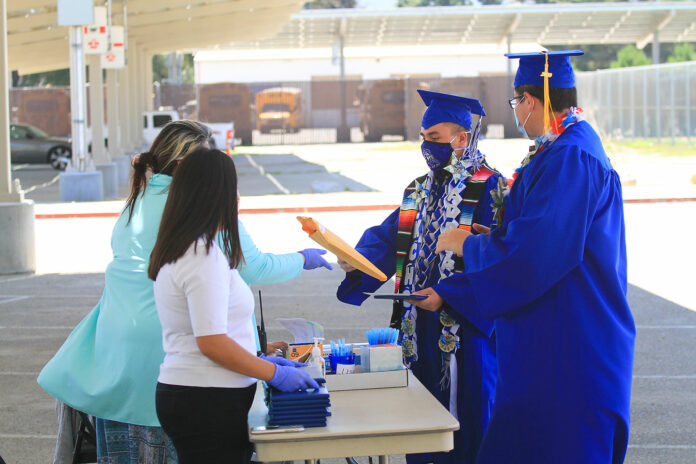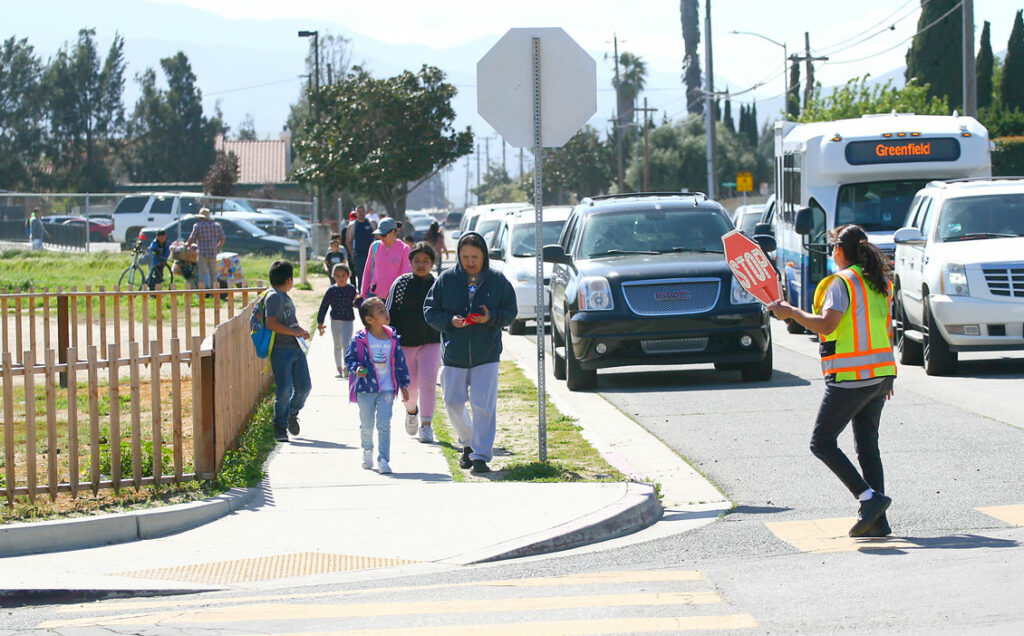
The year 2020 was unlike any other, as news of the Covid-19 pandemic nearly dominated headlines each week. However, there were other stories — some virus-related, some not — that also defined the South Monterey County community last year. Here is a look at one of those stories.
Area schools adapt to distance learning
South Monterey County schools had carried on as normal until the countywide shutdown of schools on March 13 as part of the state’s shelter-in-place orders. While such activities as sports were put on hold, educational offerings continued.
As the original two weeks of sheltering were extended to eventually last the rest of the calendar year, school officials throughout the region had to contend with how to maintain a learning environment for their students away from the classrooms.
Distance learning also meant that many in-person school events were canceled due to ongoing Covid-19 health restrictions.
One such event was the Soledad Education Foundation Carnival, scheduled to take place right as the effects of the pandemic set in. Equipment had been set up for the event meant to raise money for local scholarships, but crews were on scene March 12 to dismantle rides, booths and a carnival area that were almost ready to open to the public.
Sports programs remained on hold throughout the year, as well. At first, only games against out-of-county teams were canceled, but soon all events were shut down by mid-March.
Athletes, coaches and athletic directors awaited a decision on when a delayed and compacted fall season could begin. However, the progressing months brought decisions from California Interscholastic Federation’s Central Coast Section that the reopening of sports programs would not take place until 2021.
One of the largest questions in the face of event cancelations, school closures and social distancing was how graduations would work. Locally, the solution turned out to be a mix of drive-thru and virtual ceremonies.
South Monterey County Joint Union High School District announced in May it would reschedule all campus graduations to late summer rather than hold traditional June ceremonies.
While Portola-Butler Continuation High School, Pinnacle Academy and Greenfield High School students all had a delayed graduation held with social distancing, King City High School had a delayed drive-thru ceremony on July 31 as well as a virtual ceremony earlier in the summer.
Gonzales and Soledad high schools both hosted drive-thru ceremonies in June for their graduates, who were able to walk the stage in person to get their diploma.
Gonzales also sought out banners to celebrate the colleges and military branches that the graduates would head off to and displayed those throughout the city.
Other local programs, such as senior adoption and online recognition, became more widespread over time. To make up for the loss of revelry and cheering grandstands, communities and teachers also organized caravans to drive by and honk at graduates and their families.
Middle schools also contended with the challenges of hosting promotion ceremonies and followed suit, going with drive-thru options when possible.
With the advent of distance learning, it soon became apparent to all schools that handing out packets for students to complete at home would not suffice, which began the shift to online education. However, there was a digital divide as many families not only lacked useful internet service at home, but also devices on which students could complete their assignments or attend virtual classes.
Districts with 1:1 computer-to-student ratios, such as Greenfield Union School District, were able to issue classroom devices to students directly. An estimated 3,550 Chromebooks were issued to students beginning April 1.
The most widely successful effort to get internet in the hands of families was an effort by the City of Gonzales initiated before the pandemic. The city obtained funding for thousands of free hotspots for residents and began distribution in March.
Districts in other towns tackled the issue of digital access differently, but overlapping agencies, such as Monterey County Free Libraries, were able to host free Wi-Fi in their parking lots. Monterey-Salinas Transit also hosted parked buses at various spots throughout the Salinas Valley as Wi-Fi hotspots for students and families. The first such test of the MST hotspot program took place April 17 at Patriot Park in Greenfield.
Campuses throughout the county serve free meals, including breakfast and lunch, to students during regular academic years, but the shutdown of schools meant districts had to find ways to provide that same government service without an open cafeteria and shared table areas.
The solution was to create packaged meals to be distributed free to any youth who showed up in need. Distributions began the week after shutdown of campuses in mid-March. With the decision to hand out food to any youth came the challenge of having enough meals ready for the shifted number of students who would show up to different campuses.
“All of our food service staff are still on duty because it takes all of them to get the meals ready,” said Elizabeth Wilson, chief business officer for Soledad Unified School District.
The continued shelter-in-place orders along with distance learning came with the questioning of when schools could reopen. Monterey County never reached a threshold where schools could reopen as usual during the year, but workarounds — such as the waiver program — allowed for some area campuses to welcome the return of students as long as they met both county and state approval conditions.
Smaller schools were more agile in implementing safety changes to classrooms and also had fewer students per class, making them more likely to get approval.
Students returned to in-person instruction Nov. 2 at San Ardo School, one of the first campuses to reopen in Monterey County with new Covid-19 safety precautions, while San Antonio Elementary School in Lockwood reopened Nov. 16.
“We’ve spent an extensive amount of time planning for the reopening,” said Catherine Reimer, San Ardo superintendent.
Among the changes made were divided desks in classrooms and tables in other areas, including assigned tables that are cleaned after each meal in the cafeteria. Plexiglass dividers also have been installed to add a protective layer above social distancing and masks.















